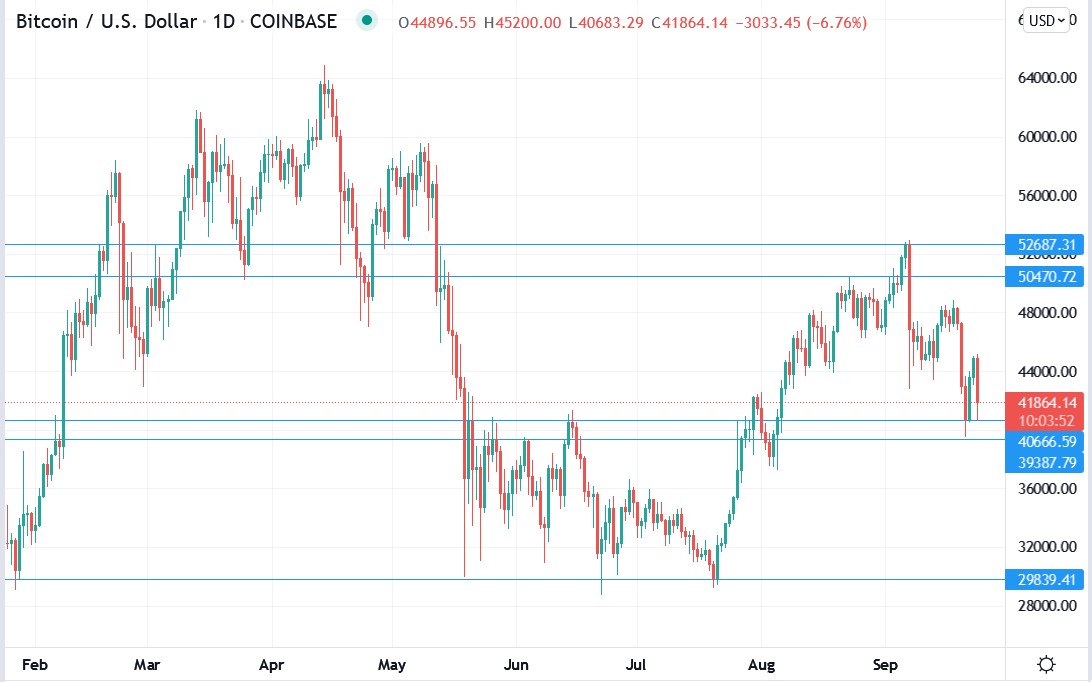Bitcoin's price has fallen back below $42,000 on Friday after China's central bank said that all cryptocurrency transactions are illegal.
It is the latest crackdown on cryptocurrencies from China after it officially banned crypto trading in 2019. In May, Chinese institutions were prohibited from providing cryptocurrency-related services and transactions. In addition, investors were warned against speculative crypto trading.
In June this year, the government also issued a ban on cryptocurrency mining. Not long after, it was widely reported that crypto miners were fleeing the country.
Before the crackdown, China was a hub for crypto mining, accounting for 60% of global Bitcoin mining and 75% of Bitcoin energy use. However, energy use fell to 46% by April this year.
“Virtual currency-related business activities are illegal financial activities,” the People's Bank of China said on Friday.
The government will “resolutely clamp down on virtual currency speculation, and related financial activities and misbehavior in order to safeguard people's properties and maintain economic, financial and social order,” they added.
Technical Analysis
Today’s ban triggered a 7% drop in Bitcoin prices to the $40,666 support level, where the price bounced back as buyers stepped in to defend the level.
The support zone between $40,666 and $39,387 is a crucial level for Bitcoin investors and traders, given that it has acted as support in the recent past.
A drop below this level would indicate that the sellers are now in complete control of Bitcoin prices, which could see the world’s leading crypto crash to the $29,839 significant support level.
So far, the current support level of around $40,666 is holding firm, which indicates that many Bitcoin holders believe that this is an isolated event that will not significantly impact the global crypto market.
However, we could get a crash to the $29,800 level if another major country also declares Bitcoin illegal, given that all the major central banks are yet to embrace the cryptocurrency.
Countries like the UK and the US have been reluctant to classify Bitcoin, with regulators giving mixed signals regarding cryptocurrencies.
It would not be a stretch to imagine that other countries may decide to follow in China’s footsteps and ban the world’s leading cryptocurrency, which could throw the entire industry into a tailspin.
We have to keep in mind that Bitcoin is a currency that competes directly with the fiat currencies issued by most central banks; hence, China’s ban on the leading cryptocurrency.
However, implementing the ban on Bitcoin is an entirely different matter, given the decentralised nature of blockchain technology.
Bitcoin daily price chart





